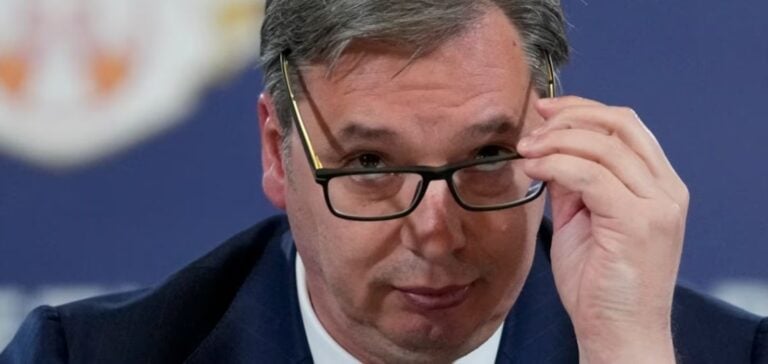Serbian President Aleksandar Vucic revealed that the United States is planning to sanction the oil company Naftna Industrija Srbije (NIS) in the coming days. This development occurs amid increasing pressure on Russia and could significantly impact the energy relationship between Serbia and Moscow.
NIS, majority-owned by Russian companies Gazprom Neft (50%) and Gazprom (6.15%), is a key player in Serbia’s energy supply. The company manages two pipelines that transport Russian gas to Serbia, underscoring the strategic importance of this infrastructure for the country.
A Tense Geopolitical Context
According to Aleksandar Vucic, these sanctions are part of a broader strategy by the United States and the United Kingdom to economically and energetically isolate Russia. The president described this announcement as “one of the hardest pieces of news to accept,” emphasizing the potential impact on Serbia’s economy and energy security.
This measure, which could take effect as early as January 1, comes as Serbia negotiates a new gas agreement with Russia, with the current contract set to expire in March 2025. Serbia’s dependence on Russian gas makes these sanctions particularly challenging, potentially forcing the country to reassess its energy alliances.
Challenges for Serbian Energy Diplomacy
Serbia has long maintained an ambiguous position toward Russia and the West. While a candidate for European Union membership, it has refused to impose sanctions on Moscow since the start of the Ukraine invasion. This relative neutrality has allowed Serbia to preserve its strategic partnership with Russia, particularly in the energy sector.
However, the announcement of US sanctions places Serbian diplomacy in a delicate position. Aleksandar Vucic mentioned the possibility of reducing Gazprom Neft’s stake in NIS to less than 50%, a move that would allow Serbia to regain some control over its energy infrastructure while minimizing the impact of sanctions.
Energy and Strategic Impact
If these sanctions are implemented, they could complicate the management of Serbia’s energy infrastructure and lead to higher supply costs. NIS, as the country’s main energy provider, is at the core of Serbia’s energy stability, and any disruption could have significant repercussions on the Serbian economy.
Additionally, this situation highlights the challenges of energy diplomacy for countries like Serbia, caught between their strategic interests with Russia and the increasing pressure from the West. Belgrade’s response to this crisis could influence its trajectory toward European integration and its role in the region’s geopolitical landscape.






















